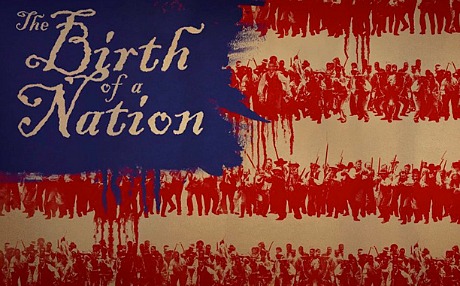Right after the recent Dallas tragedy I was thinking about tapping out a piece that analogized the twisted fury that sent Micah Xavier Johnson on an anti-cop killing spree and the obviously justified rage that sparked Nat Turner’s 1831 slave rebellion, which of course is the subject of what is probably the most Oscar-baity film of the moment — Nate Parker‘s The Birth of a Nation. I was wondering if the Dallas shootings had made Parker’s film a stronger, more inevitable Best Picture contender, or on some level a slightly less inevitable one.

But I wimped out. I was all but guillotined last January by the p.c. hounds when I shared some candid comments about Parker’s film during Sundance, and I figured the Twitter dogs would somehow spin this article, had I posted it, into an accusation that I was somehow trying to tarnish or diminish Parker’s film.
Don’t kid yourself — right now each and every critic and Oscar forecaster is being very careful about Birth. Certain persons are tippy-toeing or hiding their true opinions about it, at least for the time being. I’m no exception.
So hats off to Variety columnist Kris Tapley for stepping where I, candy-ass that I can sometimes be, feared to tread.
Excerpt: “Following a screening of Sundance prize-winner The Birth of a Nation last week, I took out my phone and saw the horrifying news coming out of Dallas. After watching the events of Nat Turner’s 1831 slave rebellion unfold on the screen — depicted with impassioned grace by director Nate Parker — a wave of thoughts and emotions was crashing inside.
“Of course, it would be intellectually careless to equate the actions of Dallas shooter Micah Johnson with the retaliation of slaves against their oppressors. They’re not at all one and the same. But there is shared DNA between the emotions that sparked the two events.
“Critics may invoke the police brutalities of Oakland, Ferguson, Baton Rouge and Falcon Heights while declaring that Parker’s film, which opens Oct. 7, comes at an explosive time for U.S. race relations, but the Dallas shootings put that tension in an even stronger light. This is a film about exasperation. It’s a film about breaking points. It’s a film, ultimately, about anger. And in 2016, when attention around race and social barriers continues to trend upward, it makes The Birth of a Nation — like Do the Right Thing before it — all the more provocative.”












